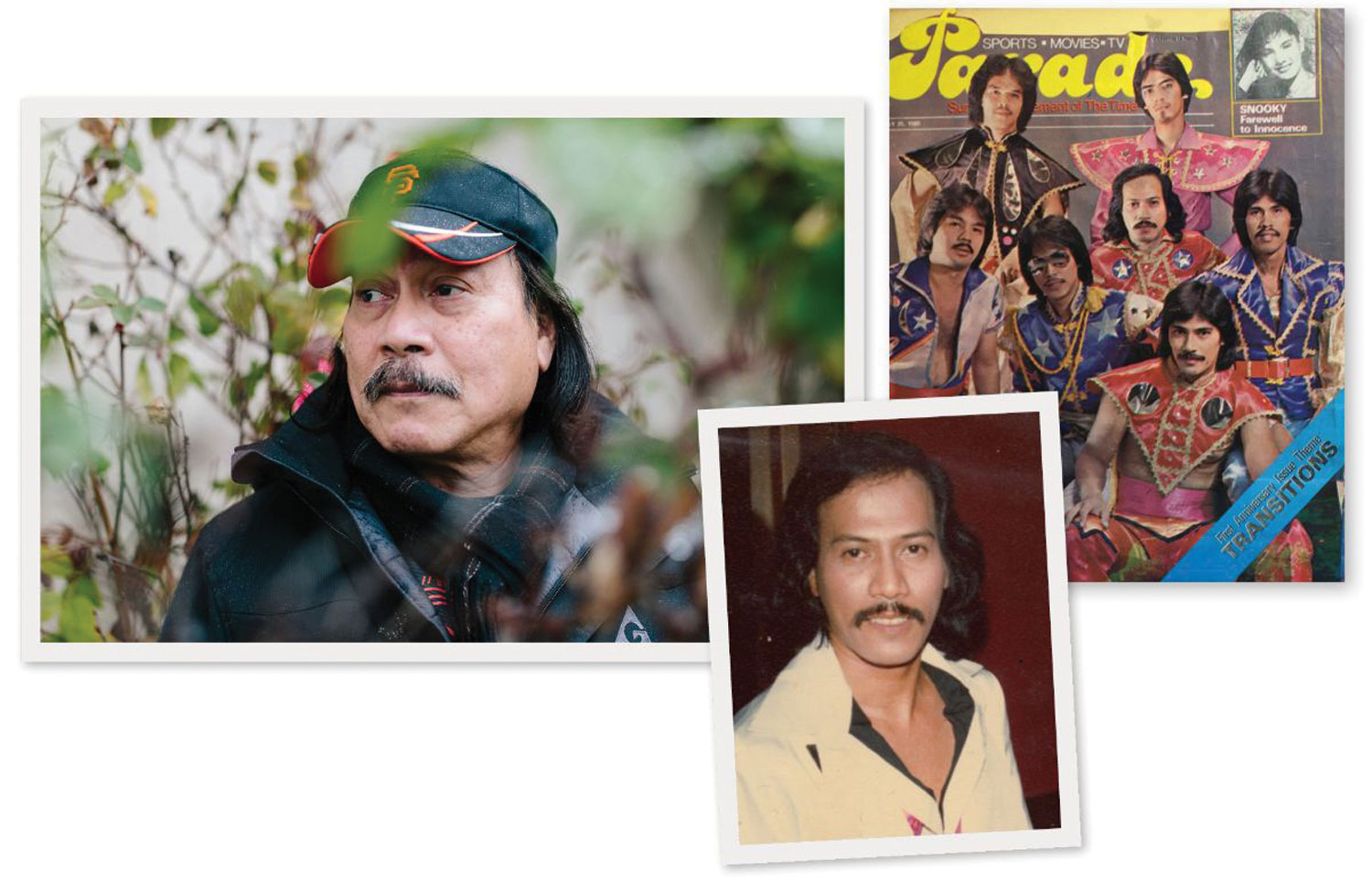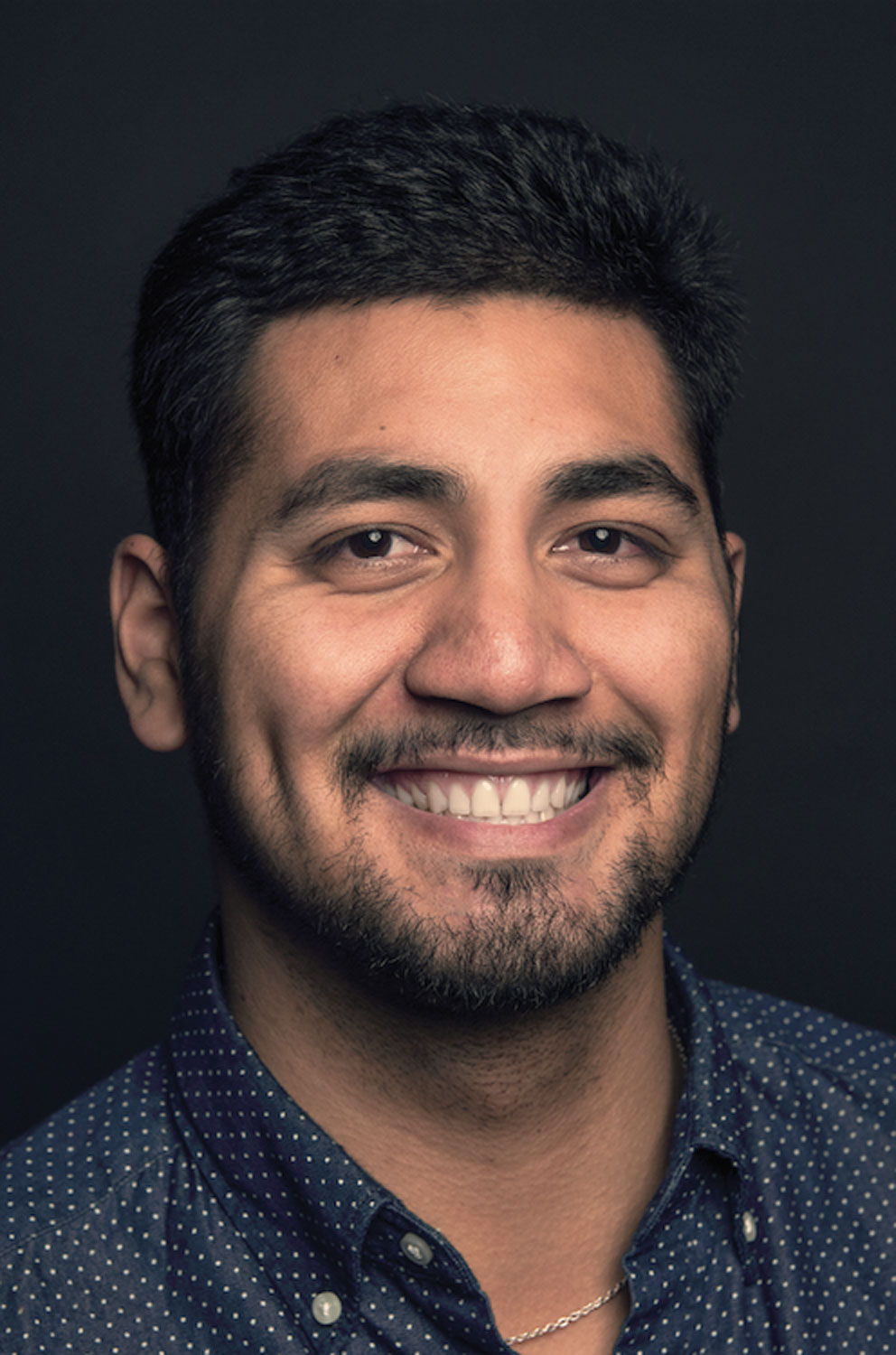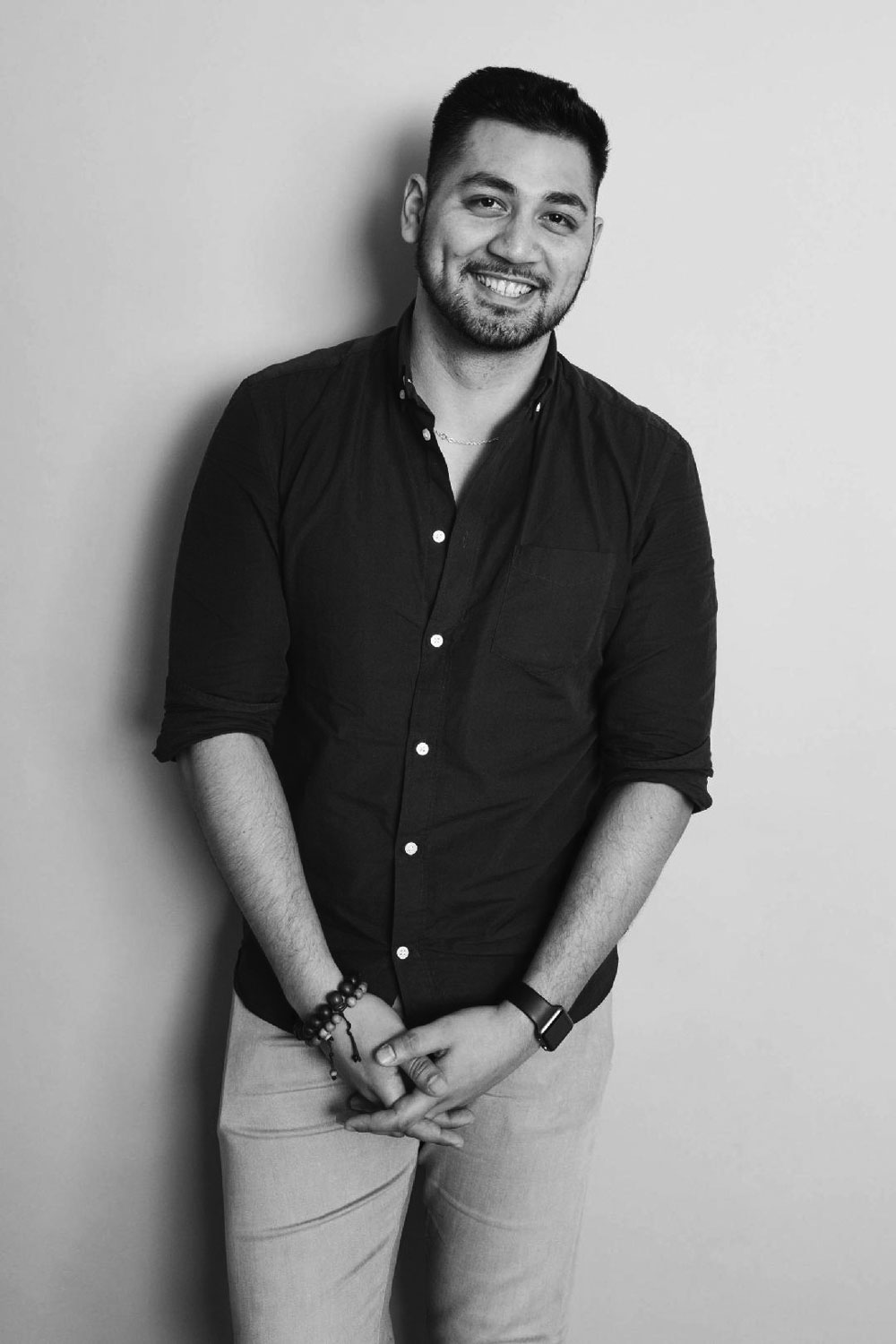
MOST Filipinos know VST & Company, and while V & T (brothers Vic and Tito Sotto) continue to bask in the limelight, S as in Spanky Rigor, decided to leave fame and fortune in the homeland for a more peaceful life in California.
For almost 30 years now, Spanky has worked at the San Francisco International Airport as a baggage handler. Sometimes, people would recognize him and would ask for a selfie. No surprise since VST & Company in their heyday pioneered ’70s disco sound was often referred to as the “BeeGees of the Philippines.”
Over the past few weeks, a video feature on Pop-Up Magazine became viral, furiously shared on social media by diehards of Manila Sound and even occasional fans. Now, even younger people know more about one of the founders behind monster hits that continue to be played in every Filipino gathering that involves line dancing.
The idea about the feature came from Albert Samaha, an investigative reporter at BuzzFeed who was fascinated by the backstory. It was a personal project: Spanky Rigor is Albert’s uncle.

| Photo courtesy of Albert Samaha
“When I was young I knew he’d been in a well-known band called VST & Company, but had no sense of how famous he was,” Samaha shared. “I never thought to dig into that past— which now feels a bit shameful.”
His elders would take about it and make passing references to Spanky’s time in the band, but as a kid, Samaha assumed “they were hyping it up the way my mom hyped up my report cards or science project.”
So he kind of knew his uncle was famous, but didn’t realize how famous, especially back in the day when VST was a household name in the Philippines.
It wasn’t until Samaha was in his 20s, when he mentioned his uncle to a Filipino friend, fellow writer Matt Ortile, who used to be his colleague at BuzzFeed. They were just talking about Philippines stuff and family stuff when it came up.
“My friend’s eyes went wide: ‘Spanky Rigor is your uncle?!’ And he explained to me how he knew all about VST, and that his parents listened to them all the time, and that he still listened to them too,” Samaha recalled.
As someone who is into investigative journalism, Samaha did more research after that.
This was around the time he began to grow more interested in his family’s own history, not just for Spanky but all his elders.
In hindsight, he thinks part of this newfound curiosity might have had to do with the fact that he had reached the age where his mom and her siblings had been when they migrated to the United States, and their journey no longer felt so distant.
“I found myself wondering whether I would’ve [taken] the same path they had, which of course only led me to dig deeper into the reasons they took the paths they did. In fact, if I remember correctly, the reason I mentioned Spanky to my friend at that party was because I was working on an essay exploring my family’s immigration story and had planned a trip to the Philippines to report on it,” he said.
Sometime in late 2016, Samaha began to become really curious about his family’s history in the US and was asking all these questions. From why they came here to what they left behind, and how his elders feel about all that now.
He wanted to report this history, and who knows, maybe write a book about it. He knew then it would have to be a long-term thing.
He was then still finishing up his first book, “Never Ran, Never Will” and knew only scant details about his family’s history. He knew even fewer details about the historical forces that led to their family’s migration.
The planned trip to the Philippines happened and he wrote an essay about his mom’s support for Duterte in 2017. Later that year, Anita Badejo, a producer at Pop-Up and a former colleague, reached out to ask if Samaha had any stories he wanted to pitch for their show.
He pitched a couple of ideas and both got rejected, but from those early brainstorming discussions came the idea that resulted in the final product which was released a couple of weeks ago.
So the project began earnestly and Samaha knew he was up for a challenge: asking his elders the hard questions about their past decisions and he was worried about unearthing memories that may have been painful or, at least, difficult.
“But my Uncle Spanky, Auntie Ging, and the other relatives I interviewed were generous with their experiences and memories, and really understood the value of that reflection, especially for those of us in the next generation who knew only the world we were born into,” he shared.
He then realized that the biggest challenges ended up being more about how to do their stories justice — what lessons, insights, and conclusions to draw, how their experiences fit into the arc of history. That part took a lot of reading and thinking.
“And even now, my understanding of those stories continues to evolve. I don’t think that’ll ever change, but you have to tell the stories when you can, which means deadlines and final drafts,” he explained. “So putting together the pieces, weaving in the historical context, arranging the timeline, picking what details to include or leave out, all building toward some kind of wider meaning, that was probably the central challenge.”
Samaha learned some of the biggest life lessons from his uncle, and for that he is grateful.
“He taught me the power optimism and warmth can have on others. Before I knew anything about his rockstar days, I’d admired him as an eternally joyous and steady presence, a champion of the underdog, always first to put an arm around anyone who seemed down,” he shared. “He has always struck me as a person at peace, and his enthusiasm for the granular moments of life made a big impression on me growing up.”

As he looked back at the past, Samaha thinks that one of the reasons he underestimated his uncle’s celebrity status is that” he always seemed to live in the present: he eats slowly, listens closely, and sees the best in people.”
Next Chapter
Samaha is now working on his next book “Concepcion,” the bigger project he anticipated when he decided to focus on his family’s decision to migrate to the U.S. This one gets more personal.
“At the core, I wanted to better understand how my family ended up in the States. Over my decade or so as a professional writer, I’ve mostly chronicled the stories of others,” he said.
He tended to avoid writing anything about himself because there is so much else to write about. But the older he got, and the more stories he heard from his elders, and the more he researched, the more he got drawn to the idea of reporting on his family’s experience.
“It’s the story I know best, and though it’s only one thread in the tapestry of the immigrant or American experience, the more threads we can record, study, and reflect on, the more understanding we’ll have of why the world works the way it does,” he quipped.
Concepcion is his mom’s family name, and it’s the name that links the main characters in the story: from his grandparents and uncles, aunties to his cousins.
“It wasn’t my first idea, or second, or third… I burned through a list of possibilities. “Over the Bridge,” which I think might end up as a chapter title. “Don’t Forget Those Who Fell During the Nighttime,” which is from a Jose Rizal quote that I may use elsewhere in the book,” he shared.
For a while, in lieu of a title, Samaha used the name of his favorite VST song, Rock Baby Rock, as a sort of code name for the book project.
When he started writing the proposal, he thought the title would be, simply, “The Concepcions” but when he told his agent, he had the brilliant idea to simplify it further.
“That the name also alludes to birth and origins made it feel fitting for the story of people starting fresh in a new place,” he said.
Journey to BuzzFeed
Samaha currently works as an investigative reporter at BuzzFeed, something he calls his dream job, one that he is in because he was able to catch some lucky breaks early on in his career.
“I get to chase stories that interest me, I have editors I trust, and I’m provided the sort of resources that make the job easier, from reporting trips to database subscriptions,” he shared. “I graduated college at a time when newspapers were shutting down and magazines were shrinking, so the precarity of working in journalism is always in the front of my mind.”
His first three jobs were at alternative-weeklies, in St. Louis, San Francisco, and New York, where they hire young writers and ask them to fill the paper. He was writing eight or nine features a year while learning how to be a local reporter from editors who had been in journalism longer than he’d been alive.
“When I was at the Village Voice in New York, my main beat was criminal justice, and right around the time BuzzFeed News was expanding its operation, the Ferguson uprising happened and suddenly criminal justice became the central issue of the moment, and when BuzzFeed went out looking for someone to cover the topic, I had relevant clips to show them and a bit of experience,” he said.
Pursuing Stories with Impact
Samaha’s reporting has freed a man from prison, got a police chief fired, and changed laws in six states.
“You always hope at the outset that a story can have an impact, but it so rarely happens, so you never expect it. When it does happen, it feels good, obviously, but also like a relief, because it can be disheartening to devote weeks to revealing a problem that doesn’t get fixed,” he shared.
He explained that the 2018 story that changed the laws did so because it caught a wave of public outrage, and a lot of people called (or tweeted at) their congressional representatives.
The case at the center of it had made headlines, but the laws that allowed officers to abuse people in their custody were little known: the officers in this case claimed that they’d had consensual sex with a woman they’d pulled over, and in New York state they were allowed to use this defense because the law didn’t automatically classify sex in custody as rape.
“I found that dozens of officers had been acquitted through this defense, and after many hours of reading through all 50 state legal codes, I discovered that this loophole existed in 35 states,” he recalled.
His 2015 story that led to the police chief getting terminated investigated a narcotics unit in Mississippi that targeted college-age students for minor possession, then pressured them to serve as confidential informants.
The officers exaggerated the charges they faced, and discouraged them from speaking with a lawyer or calling their parents. These kids then had to wear a wire and help out on a certain number of drug busts, which usually targeted their friends.
“One student recorded his interaction with the unit’s chief and sent it to me, confirming many of the details I’d gathered in my reporting and providing indisputable evidence of the unit’s troubling tactics. The unit’s chief resigned the same day the story was published, under pressure from local officials,” he said.
Personal Journey
When Samaha last visited the Philippines in April 2017, he went with his mom, for an essay he wrote about Duterte later. His mom grew up in Manila, though her parents are from northern Mindanao. His dad is from Beirut and currently lives there.
They met on an airplane. His mom was a flight attendant, his dad a passenger.
“They separated when I was young. I lived with my mom in California, but saw my dad at least once a year, and much more often in recent years. I grew up around my mom’s side, so culturally I felt full Filipinx growing up,” he said.
His mother has seven siblings and most live in the States.
Samaha was born in Vallejo, went to Kindergarten in Manila, first through third grade in San Francisco, fourth grade in San Mateo, then middle school and high school in Sacramento.
“I went to six different schools from Kindergarten to 8th grade, and having to keep adapting to those new environments and being constantly presented with the unfamiliar certainly shaped who I am today in ways I’m still untangling,” he said.
He considers sports as his gateway into writing. He grew up reading the sports section of the newspaper and Sports Illustrated magazine, and by high school, he knew he enjoyed writing and wanted to keep doing it.
This love for writing to a backseat when he checked if he could become a professional football player. He played in his first two years of college, then quit to focus on journalism, something that he enjoys doing to this day.









Well, what is Spanky doing now? Is he still singing? What happened to the group?
I think VST means Vicente Sotto the Third (Tito Sotto).
I finished reading Concepcion. What a great and well written book. Salute to Albert Samaha. I hope this book will be a blockbuster in the Philippines